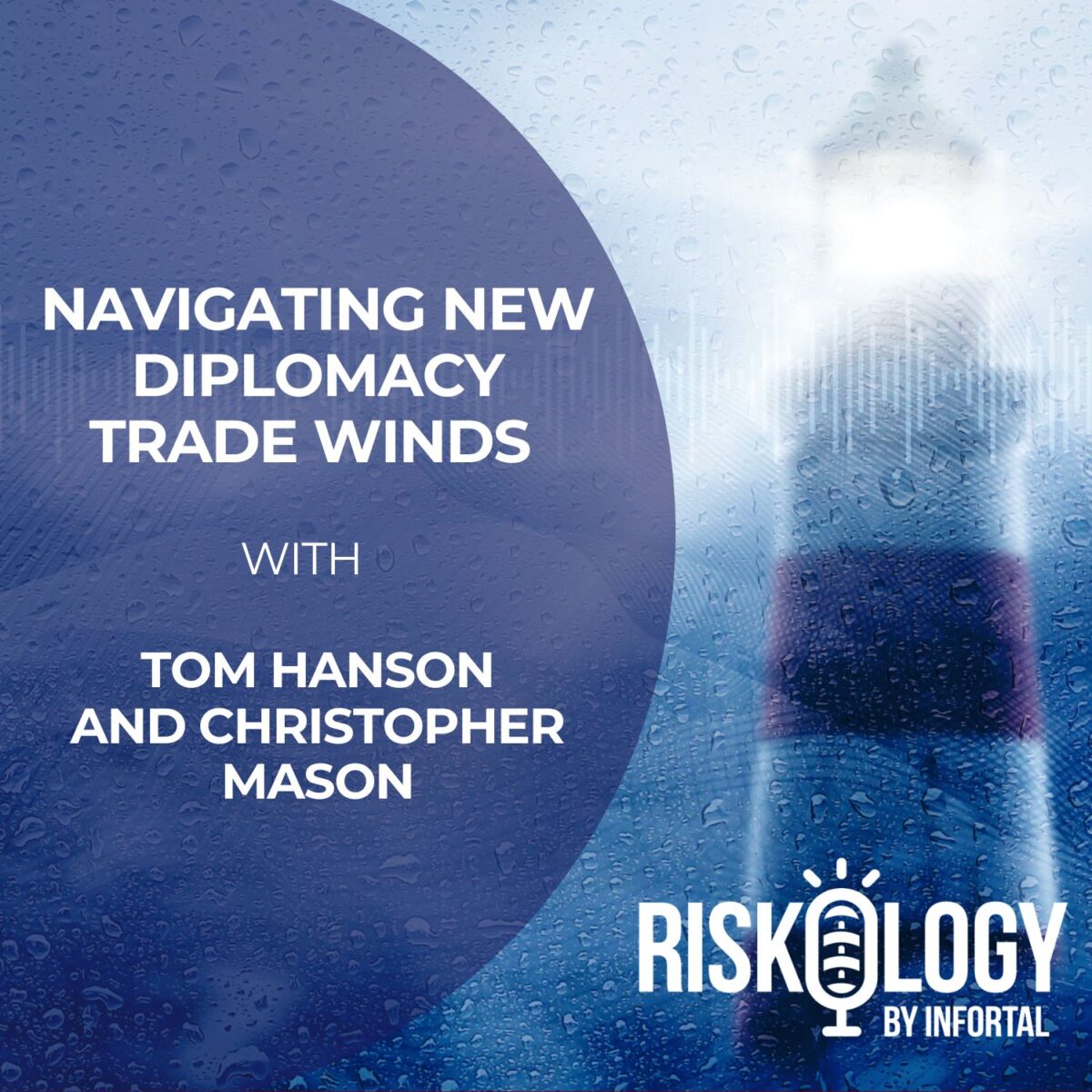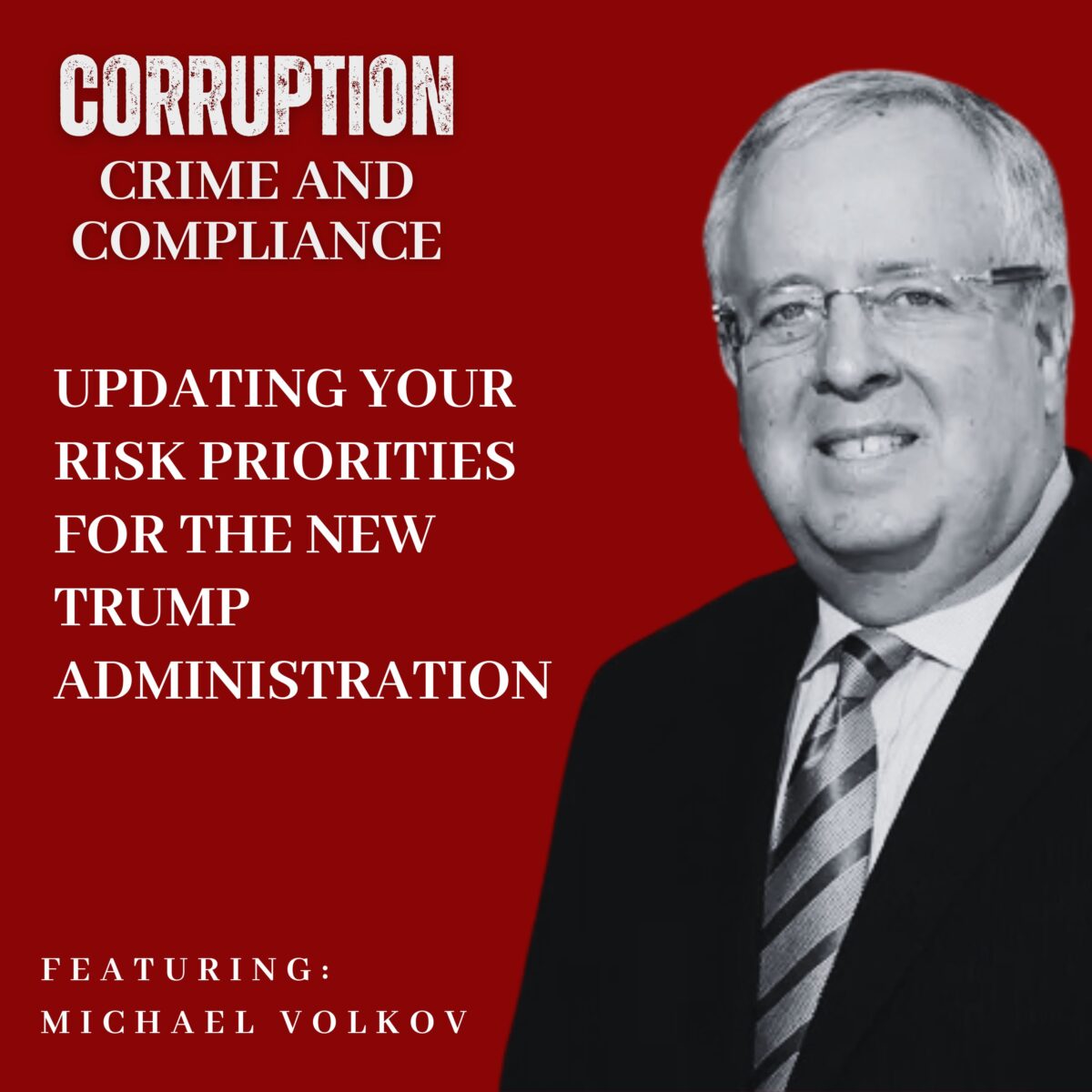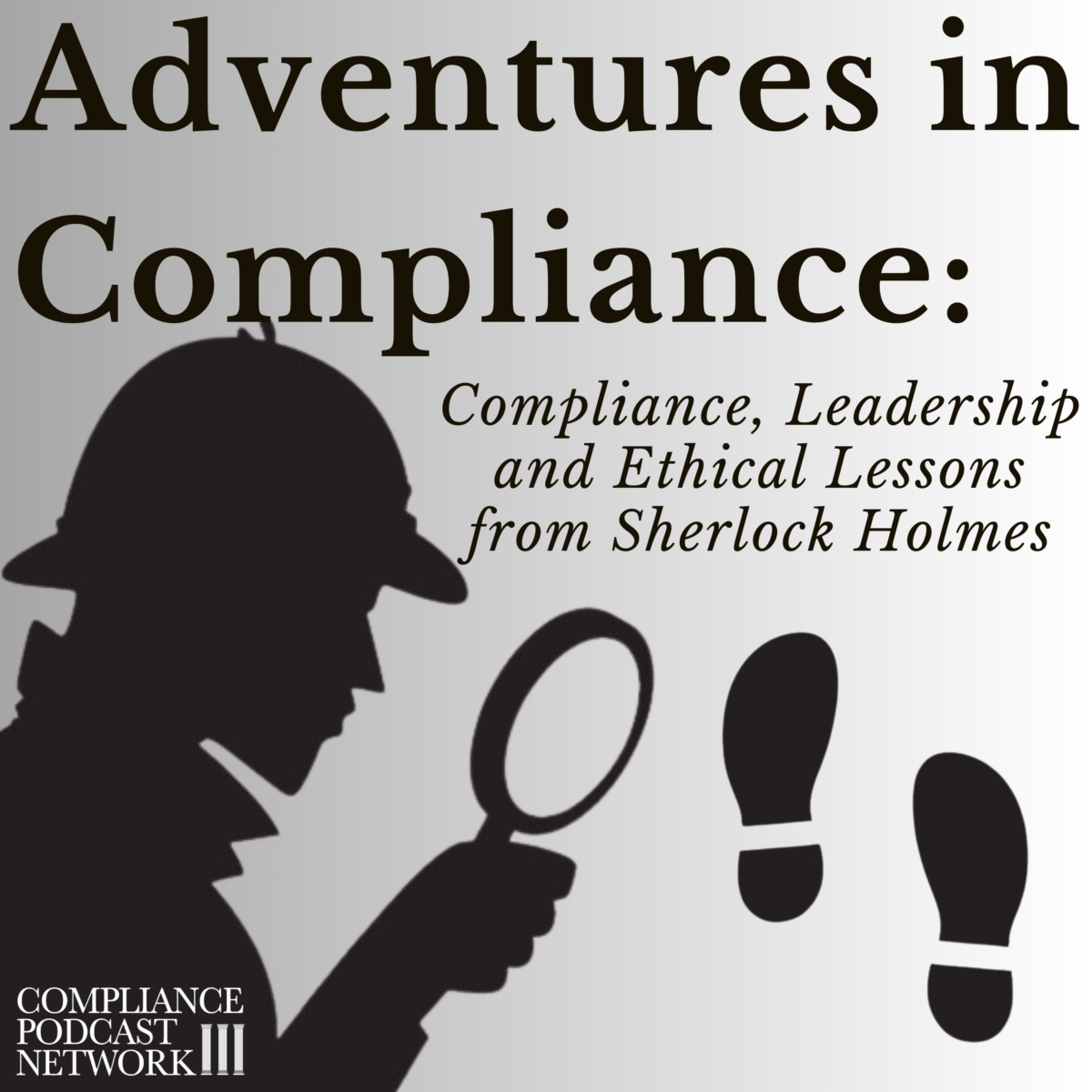Join Riskology by Infortal™ Host, Chris Mason, and Tom Hanson, the CEO and Founder of Channel Architect LLC, as they discuss the challenges companies are dealing with in the face of shifting global diplomacy and trade relations.
Special Guest: Tom Hanson, the CEO and Founder of Channel Architect
Tom Hanson has more than 30 years of experience guiding companies and governments to trade and investment success in complex international markets. His California-based global trade advisory firm, Channel Architect LLC, builds scalable channel strategies for export-ready providers and prepares its local and national government clients on how to win and retain foreign investors in their jurisdictions.
Tom completed his tenure in 2023 as a commercial officer with the U.S. Foreign Commercial Service, with postings in Bucharest, New Orleans, Calgary, and São Paulo. Throughout, he strengthened the international competitiveness of American businesses and communities by promoting exports and attracting foreign direct investment while ensuring access to free and fair trade.
Infortal Worldwide:
Infortal™ Worldwide provides the full suite of due diligence investigation services to support your company’s risk management program and investment due diligence process. This includes investigation capabilities in over 160+ countries worldwide.
For over 35 years, Infortal™ has enabled clients across all industries to mitigate their business risks and protect employees and assets globally.
Infortal™ Worldwide is also at the forefront of examining how geopolitical risk can impact strategic decision-making, the long-term sustainability of your business, and the potential downstream impact on key partners and suppliers.
Infortal™ Worldwide focuses on solving risk before it starts.
Understanding the Changing Dynamics of International Commerce
In a rapidly evolving global economic landscape, international trade and diplomacy are key factors shaping business strategies, and this episode delves into these complexities. With decades of experience in both diplomatic and commercial sectors, Tom provides invaluable insights into strategic market entry and the current challenges and opportunities in international business. He emphasizes the strength of North America as a united trading bloc, underlining the geopolitical leverage it can wield on the global stage.
Navigating North American Trade: USMCA and Beyond
The importance of the United States-Mexico-Canada Agreement (USMCA) and its implications for companies operating within North America should not be understated. Strategic partnerships and robust distribution channels that can adapt to shifting policies and maintain market resilience are critical to dealing with shifting politics. The ability to leverage close geographic and economic ties with neighboring countries is vital for tapping into undiscovered revenue streams. This requires relationship building and understanding who you are doing business with across borders.
The European Equation: Economic and Geopolitical Challenges
Across the Atlantic in Europe, economic headwinds and geopolitical tensions present significant challenges for companies.
Tom shares his perspective on the European Union’s efforts to maintain solidarity amid external pressures and internal uncertainties. It will be important to monitor the developing strategy for rebuilding Ukraine post-conflict and the EU’s role in this endeavor.
There will be future areas for engagement and investment.
Strategic Resilience: The Key to Future-Proofing Business
Throughout the podcast, a recurring theme emerges: business resilience.
Host Chris Mason emphasizes how companies that build strong partnerships and adaptive strategies are better positioned to weather international uncertainty and capitalize on opportunities. As geopolitical landscapes shift, resiliency becomes invaluable in maintaining competitiveness and ensuring sustained growth.
This episode provides a comprehensive understanding of the dynamic interplay between international diplomacy, commerce, and strategic business planning, offering guidance for businesses looking to thrive in an increasingly complex international environment.
Check out Episode 42 of Riskology by Infortal™ to learn more!
Resources:
Infortal Worldwide
Email
Tom Hanson on LinkedIn
Chris Mason on LinkedIn










